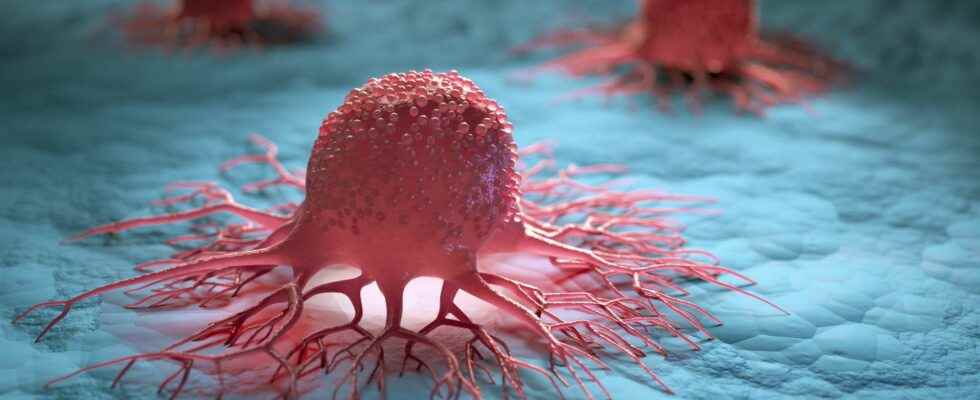The tumor DNA contained in cancer cells can be detected in small quantities in the bloodstream: it is then called circulating tumor DNA. Researchers have developed a blood test allowing its detailed analysis. This type of test would make it possible to determine which treatment is the most suitable for each patient.
You will also be interested
[EN VIDÉO] Breast cancer: screening From the age of 50 it is recommended to have a mammogram every 2 years. But what is screening for?
While blood tests for detect cancer are under development, researchers have studied the possibility this time of determining which treatment would be most suitable for each patient. “With just a few drops blood test, we can uncover critical information about a person’s overall disease and how best to manage their cancer.”explains Dr. Alexander Wyatt, co-author of the study published in Nature and researcher at Vancouver Coastal Health Research Institute (VCHRI) and BC Cancer. “This test has the potential to help clinicians choose better treatment options and more effectively detect the disease. resistance to treatment, allowing clinicians to adjust clinical care as needed. »
For this, the team took blood samples from patients with a metastatic cancer of the prostate : cancer at an advanced stage that has spread to other organs in the body. This type of cancer is often incurable, despite chemotherapy and targeted therapies. ” The cancer metastatic are complex and our understanding of these is limitedsays Dr. Wyatt. While traditional biopsies only provide a small snapshot of the disease, this new test is able to paint a more complete picture of metastases throughout the body, all from a simple and easy-to-perform blood test.”
Genome sequencing of circulating tumor DNA
After the samples were taken, the researchers carried out a sequencing full of DNA tumor circulating, or more exactly a “deep sequencing of genome whole of plasma in series and metastases synchronous ». They extracted a lot of information about metastases, cancer cells away from the original site. In particular their evolutionary history, that is to say the way in which the cancer has spread in the patient’s body. By then cross-checking with the history of the treatments taken by the patients, they were able to deduce which were effective or not. “This technology can be applied to other types of cancer to understand how these tumors metastasize and how they eventually escape treatmentsays Dr. Wyatt. It will also help us design the next generation of cancer therapies that more effectively target resistant diseases.”
A desire to escape for the summer?
To celebrate the holidays as it should be, discover the Mag Futura at the preferential price of €15 instead of €19, i.e. a reduction of 20% !
On the program of this issue: a dive into the heart of 4 scientific themes that will mark 2022, from the Earth to the Moon:
- What mysteries does the Moon still hide from us?
- Will we soon be able to cure everything thanks to genes?
- How to feed the world without destroying it?
- Can artificial intelligence become truly intelligent?
What is Mag Futura?
- Our first paper journal of more than 200 pages to make science accessible to as many people as possible
- 4 major scientific questions for 2022, from the Earth to the Moon
- Home delivery*
*Delivery is made in France (excluding metropolitan France), Switzerland, Belgium.
Interested in what you just read?
